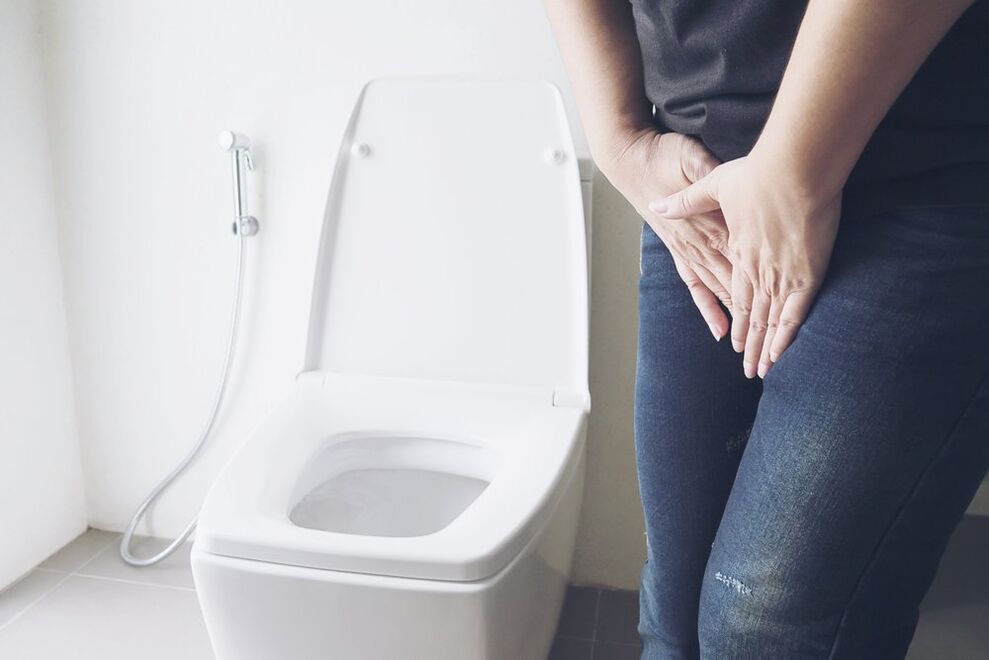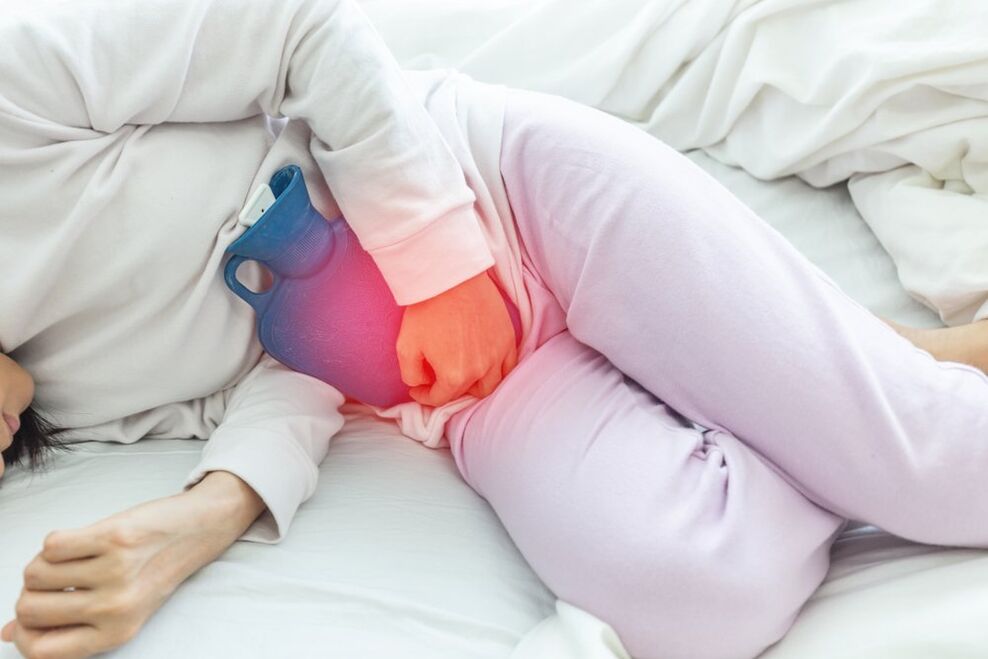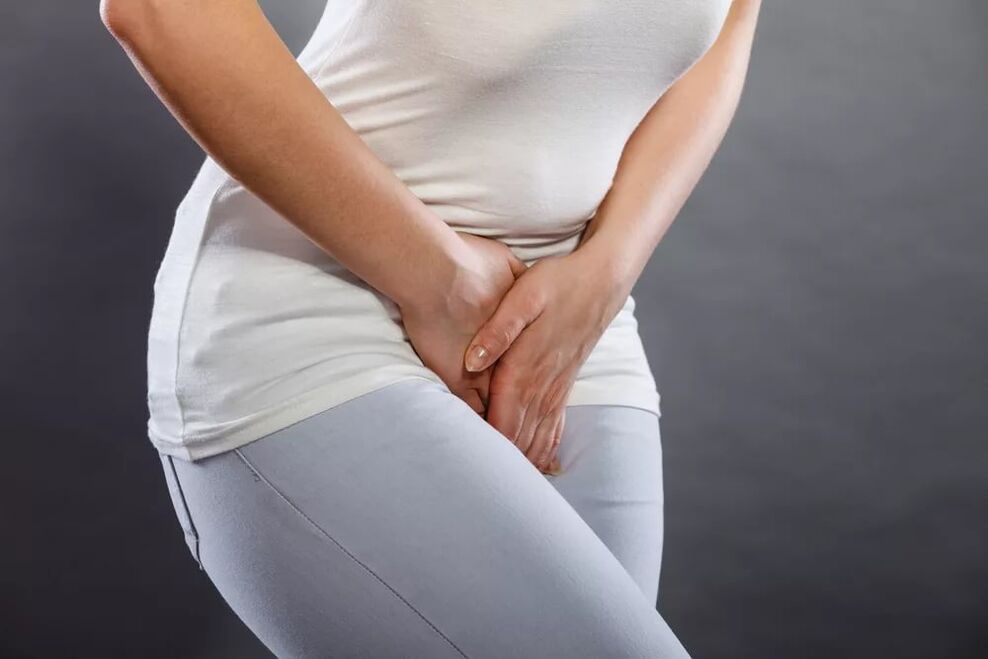
According to statistics, cystitis in women is much more common than in men, which is explained by physiological differences in the structure of the urethra. This disease is usually accompanied by a number of unpleasant symptoms: pain and pain when urinating, frequent urination and pain in the lower abdomen.
Cystitis is a common disease of the urinary system. It is largely due to the peculiarities of the anatomical structure, which is why cystitis in women is much more common than in men.
What are the causes and early signs of cystitis in women? What are the main symptoms of female cystitis? What types of cystitis are isolated? Which doctor treats cystitis and how is the disease treated at home? Is it possible to prevent the development of cystitis and what needs to be done about it?
Cystitis in women: is it necessary to make an appointment with a doctor?

Cystitis in women can be caused by various infectious diseases, helminthic invasions, bladder stones, the onset of menopause, disruption of the endocrine system and taking certain medications. In addition, there is interstitial cystitis, the exact mechanism of which has not yet been elucidated.
It should also be noted that cystitis in women can be acute or chronic. The chronic form is characterized both by frequent relapses of the disease and by a slow and incessant symptomatic manifestation.
To prevent the disease from becoming a constant source of discomfort, it is necessary to make an appointment with a doctor at the first signs of the disease and undergo the necessary treatment. All you need to do for this is to call the profile clinic. The specialists dealing with this problem are urologists and gynecologists. Although even a general practitioner can cure a simple form of the disease.
To diagnose cystitis in women, they usually do a urinalysis, smear from the urethra and vagina. In the chronic form of the disease, it is also recommended to be examined for the presence of sexually transmitted diseases (STDs).
Also, in some cases, additional examinations are required, for which you will need to make an appointment with a nephrologist, perform an ultrasound of the small pelvis or cystoscopy.
The insidiousness of this disease is that the treatment of cystitis is usually quite easy, and the unpleasant symptoms quickly disappear. Therefore, many women prefer to self-medicate by buying antibacterial drugs advertised in pharmacies.
However, the lack of adequate therapy, its short duration and the incorrect choice of drugs contribute to the transition of the disease to a chronic form, which, in turn, is difficult to cure. Therefore, you should not take any chances and use the advice of friends when choosing medicines - it is better to call the doctor by phone and make an appointment. It should be remembered that timely treatment will not only avoid chronic cystitis, but also save other organs from the spread of infection.
Which symptoms of cystitis cause the most discomfort?
The signs of acute cystitis in women always come on suddenly. These include:
- frequent and strong urge to urinate;
- an increase in the content of leukocytes in the urine and a change in its smell;
- the presence of traces of blood in the urine;
- sharp pain in the lower abdomen;
- burning and pain when urinating;
- increase in body temperature.
These symptoms develop very quickly. About every quarter of an hour, a woman has to go to the toilet, and the amount of urine at each visit is minimal. Also, the spasm of the bladder muscles can lead to urinary incontinence.
Cystitis has a tendency to relapse. Most women seek help at least once a year.
In the chronic form of the disease, the symptoms are less pronounced. For example, discomfort when urinating manifests itself quite moderately. The frequency of going to the toilet also does not change. In general, a person can lead a normal life and attend work (study).
Methods for the prevention and treatment of cystitis

To learn about the possible ways to prevent and treat cystitis in the fair sex, it is necessary to determine the main causes of the disease. These include:
- structural features of the urethra in women (it is shorter and wider than in men);
- hormonal fluctuations (pregnancy, menopause), which upset the balance of microflora and weaken the strength of local immunity;
- infection of the urinary system (can occur due to insufficient personal hygiene, unprotected intercourse);
- trauma (for example, when using a catheter to divert urine).
Cystitis can also manifest itself as a concomitant disease with diabetes mellitus or urolithiasis. By the way, it is impossible to "gain" this disease from hypothermia. And similar symptoms signal the development of polyuria (cold diuresis).
Therefore, the first thing to do in the face of cystitis is to dial the telephone number of the clinic and make an appointment with a doctor. Only an experienced specialist, based on the tests, will determine the presence of an inflammatory process and prescribe the correct antibiotic therapy. It will relieve most of the unpleasant symptoms during the first few days.
Also, the treatment of cystitis involves taking painkillers and antipyretic drugs. Doctors recommend during therapy to observe a sufficient drinking regimen, which will accelerate recovery (bacteria will be eliminated more quickly from the body with urine).
Experts never tire of warning that it is dangerous to self-medicate this disease. In fact, many diseases of the genitourinary system have symptoms similar to bacterial cystitis, which cannot be cured with an antimicrobial drug. As a result, you can waste valuable time and face a serious health threat.
Measures to prevent this disease are:
- personal hygiene (daily change of underwear, frequent change of sanitary pads and regular showers);
- wearing properly selected underwear made from natural materials;
- timely treatment of all existing diseases of the genitourinary system;
- obligatory visits to the bathroom and shower after intercourse.
If the attack was caught on the street or on vacation, before seeking medical help, you should try to avoid hypothermia, drink more fluids, limit the consumption of spicy and salty foods, as well as alcohol.
If you suffer from chronic cystitis, you should visit your doctor before a long trip and discuss with him a number of medicines that you should take with you on the trip. And also (if possible) get his phone number for emergency communications.

























